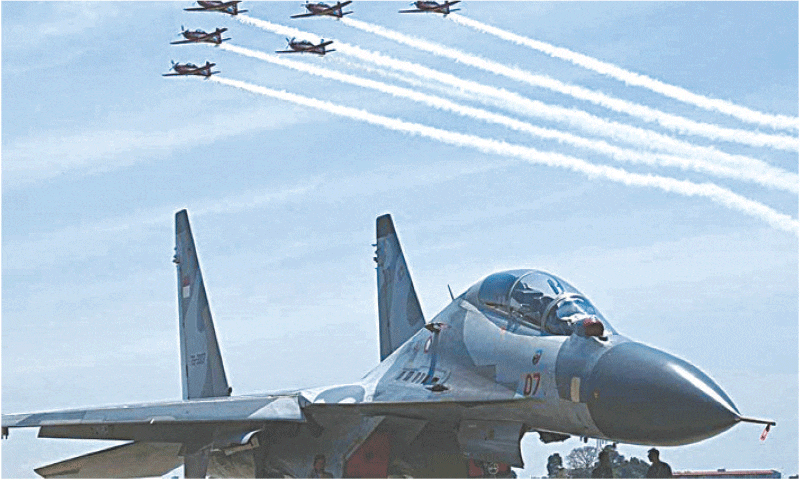The recent India-Pakistan air clash over Kashmir has reignited critical debates about modern air warfare, arms procurement strategies, and the foundational importance of airspace sovereignty in national defense. Pakistan’s successful deployment of Chinese-made J-10C jets against India’s Rafale fighters demonstrated that technology alone is meaningless without doctrine, training, and operational control. For Indonesia, this clash is a wake-up call: investing in advanced fighters like the Rafale is futile without full command of its own skies—particularly over strategic zones like the Strait of Malacca, which remains under Singapore’s air traffic control.
Key Arguments:
-
Air Defense ≠ Fighter Jets Alone
-
Modern air power requires integrated systems: radar networks, command centers, forward bases, and real-time intelligence.
-
Indonesia’s Rafale purchases are symbolic without the ability to freely operate them in contested airspace.
-
-
The Strait of Malacca Paradox
-
Since 2022, Indonesia has ceded operational control of its airspace (up to 37,000 ft) over the Riau Islands and Malacca Strait to Singapore.
-
This undermines patrols, training, and rapid response in a region vital to national security.
-
-
Sovereignty First, Weapons Later
-
Pakistan’s success with Chinese jets stems from doctrine, training, and full operational authority—not just procurement.
-
Indonesia must renegotiate airspace agreements based on the Chicago Convention (1944) and domestic aviation laws.
-
-
A Call for Strategic Patience
-
Air defense is a decades-long project, not a five-year procurement spree.
-
Indonesia needs a geography-based defense blueprint, prioritizing sovereignty over prestige.
-
Reclaim the Skies to Secure the Future
Indonesia’s air defense strategy must begin with reasserting control over its airspace, particularly in the Malacca Strait—a chokepoint for global trade and potential conflict. Without this, even the most advanced jets will remain stranded on runways, unable to defend the nation’s most vulnerable frontiers. The lesson from Pakistan is clear: weapons are only as effective as the sovereignty behind them. Indonesia must choose between symbolic arms purchases and real air power—rooted in independence, strategy, and operational freedom.
The path forward?
✔ Diplomatic renegotiation to reclaim airspace control.
✔ System-first approach: radars, command centers, and training before more jet purchases.
✔ Long-term doctrine aligned with geographic threats, not political cycles.
Without these steps, Indonesia’s air defense will remain a hollow force—armed with Rafales but grounded by foreign-controlled skies.







